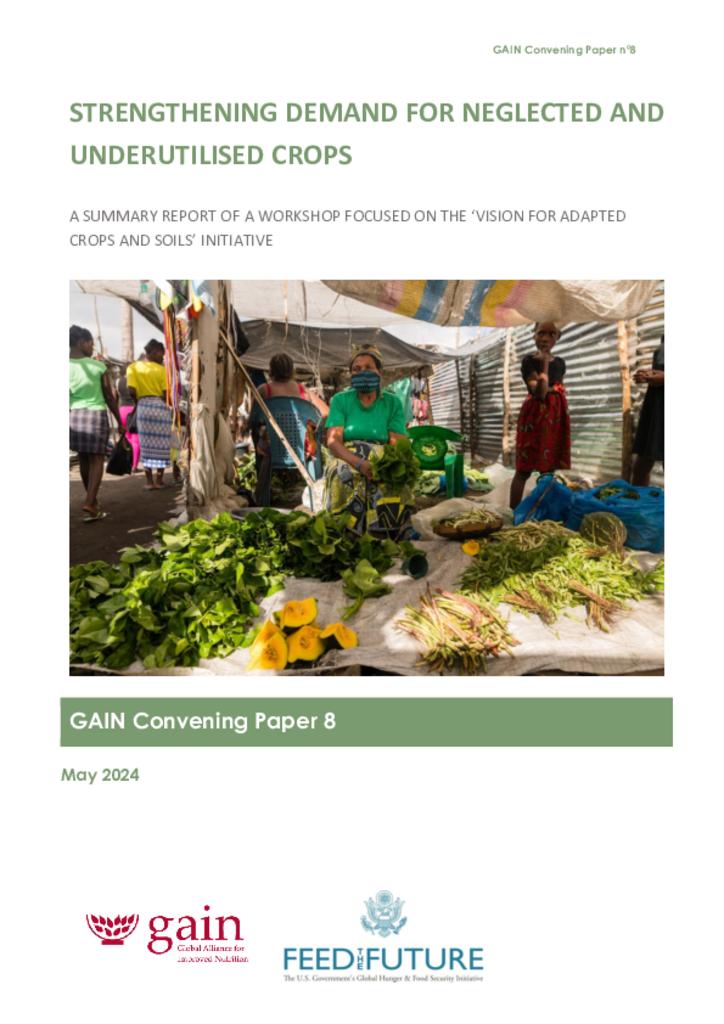Recording available on above link
EU representatives presented how best to support this type of initiative and upcoming opportunities to develop value chains related to the nutritional products and share ideas for building pilot Global Gateway projects in the field of nutrition.
Speakers
- Helena Guarin, Head of section Nutrition, INTPA F3- Sustainable Agri-Food systems and Fisheries unit (F3)
- Auxane Gennetais, Health and Nutrition Project Manager, GRET
- Quentin Moreau-Hamel, Policy officer, INTPA E2- Trade, Investment Climate, Entrepreneurship & Value Chains
- Mandresy Randriamiharisoa, Director General, Nutrizaza, Madagascar
- Siny Samba, Director General, Le Lionceau, Senegal
- Tharcisse Nkunzimana, Programme Manager – EU Delegation, Niger
- GRET, (France) a partner of EU, has a twofold objective: to help develop and make available
quality local foods adapted to the nutritional needs and expectations of the 1000 days window, and to support a market-led approach to disseminate targeted quality fortified foods in a sustainable way, to as many people as possible, at lower cost. - Nutri'zaza is a Malagasy social enterprise, created in 2013, whose main objective is to combat child malnutrition by improving the nutrition of Malagasy children and families. To achieve this, it distributes quality fortified products, adapted to those most affected by chronic malnutrition and micronutrient deficiencies, and available everywhere at an affordable price, even to the most vulnerable. Working in urban areas, the company distributes its products, made in Madagascar from essentially local ingredients, through 3 distribution networks.
- Le Lionceau is a Senegalese company that offers a range of products for feeding babies mainly small jars and biscuits made on the basis of recipes and local products. The company has found its market at the national level, mainly in urban areas and now wants to take a new dimension by opening up to a wider market in West Africa. Her director will share her experience as a pioneer in the region in the early childhood food market and the challenges she faces to give a new dimension to her business.
- The representative of the EU Delegation, Niger shared his experience on supporting local flour production initiatives and partnership with the private sector in the field of nutrition. In particular, it will address regulatory aspects, support through political dialogue and challenges and opportunities to promote the business environment of companies with both a social and economic vocation.
Resources
 GAIN (2024) STRENGTHENING DEMAND FOR NEGLECTED ANDUNDERUTILISED CROPSA SUMMARY REPORT OF A WORKSHOP FOCUSED ON THE ‘VISION FOR ADAPTEDCROPS AND SOILS’ INITIATIVE #46 pp.
GAIN (2024) STRENGTHENING DEMAND FOR NEGLECTED ANDUNDERUTILISED CROPSA SUMMARY REPORT OF A WORKSHOP FOCUSED ON THE ‘VISION FOR ADAPTEDCROPS AND SOILS’ INITIATIVE #46 pp. Overreliance on a few main crops, as well as poor soil health, reduce yields, hinder
achievement of food security and nutrition objectives, and increase agricultural
vulnerability to climate change. To address this, the Vision for Adapted Crops and Soils
(VACS), launched by the United States in partnership with FAO and the African Union,
and as part of the whole-of-government Feed the Future initiative, seeks to support soil
health as well as breeding of traditional and indigenous crops in Africa. Building on
U.S. government food security efforts, VACS’ goal is to accelerate development of
improved crop varieties that could lead to increases in both yield and nutrition, to
tackle the challenges of food insecurity in the context of climate change
This paper considers whether Public-Private Partnerships (PPPs) focused on improving diets
andnutrition can simultaneously advance public health nutrition goals and business goals.
Discussion around the efficiency of PPPs is polarised in the field of nutrition: they are seen to
have considerable potential to improve diet and nutrition outcomes by harnessing resources,
reach, relationships and knowledge, but there is also some mistrust of private-sector actors
and their motives.
This paper explores the following questions: What is it about food and diets that makes it
especially challenging for the public sector to engage and work with the private sector and,
in turn, formulate PPPs? Why is there a lack of evidence and documentation about what has
and has not worked with PPPs in the food systems domain? How do we address impediments
and incentivise the creation of more PPPs that have potential to advance diet and nutrition
outcomes whilst remaining commercially sustainable? How do we negotiate the complex
nutrition terrain to make progress? The paper offers a range of insights, solutions and
guidelines on how to increase the likelihood of PPPs being impactful and accountable.


No comments:
Post a Comment